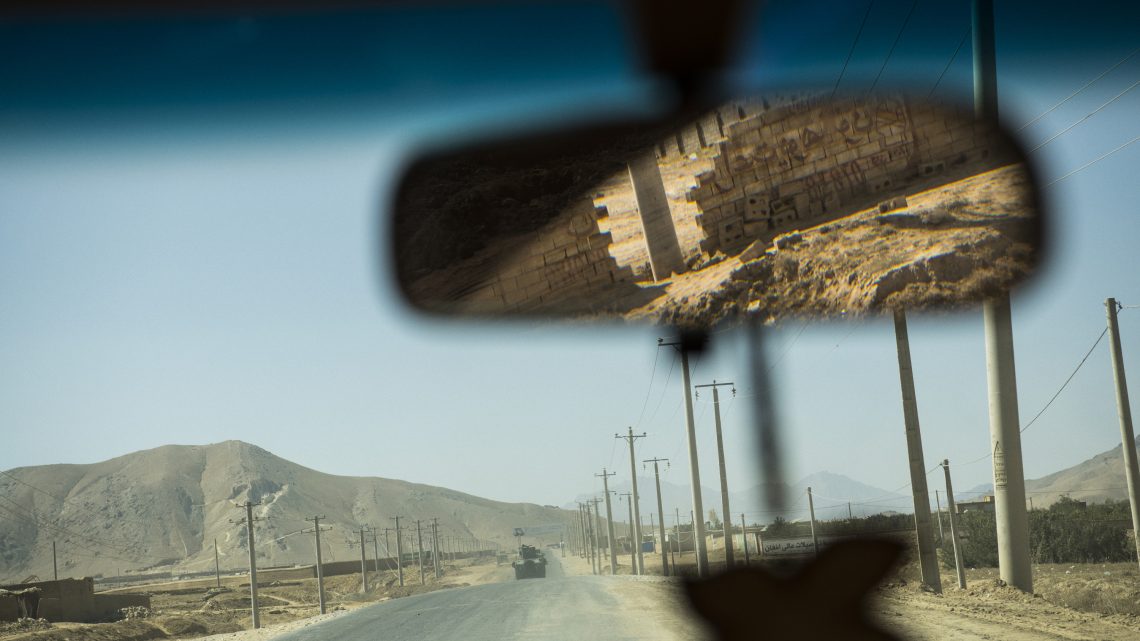
The Taliban Made Sure Afghans Were Too Terrified to Vote on Election Day
September 30, 2019WARDAK, Afghanistan — An armored Land Cruiser sped by, flanked front and rear by Afghan police Humvees with machine gunners in their turrets. They were the only vehicles on the typically chaotic 20-mile stretch of road that connects Kabul with Wardak’s capital city Maidan Shahr.
It was Election Day, and motorists had heeded the Taliban’s warning to stay home.
“The Taliban told people you’ll be killed or have your fingers cut off,” Rahmatullah, a 19-year-old from Maidan Shahr, told VICE News. Machine gun fire in the distance sounded like fingernails wrapping on a tabletop. According to preliminary tallies, as few as 2.5 million of the 9.6 million registered voters turned out.
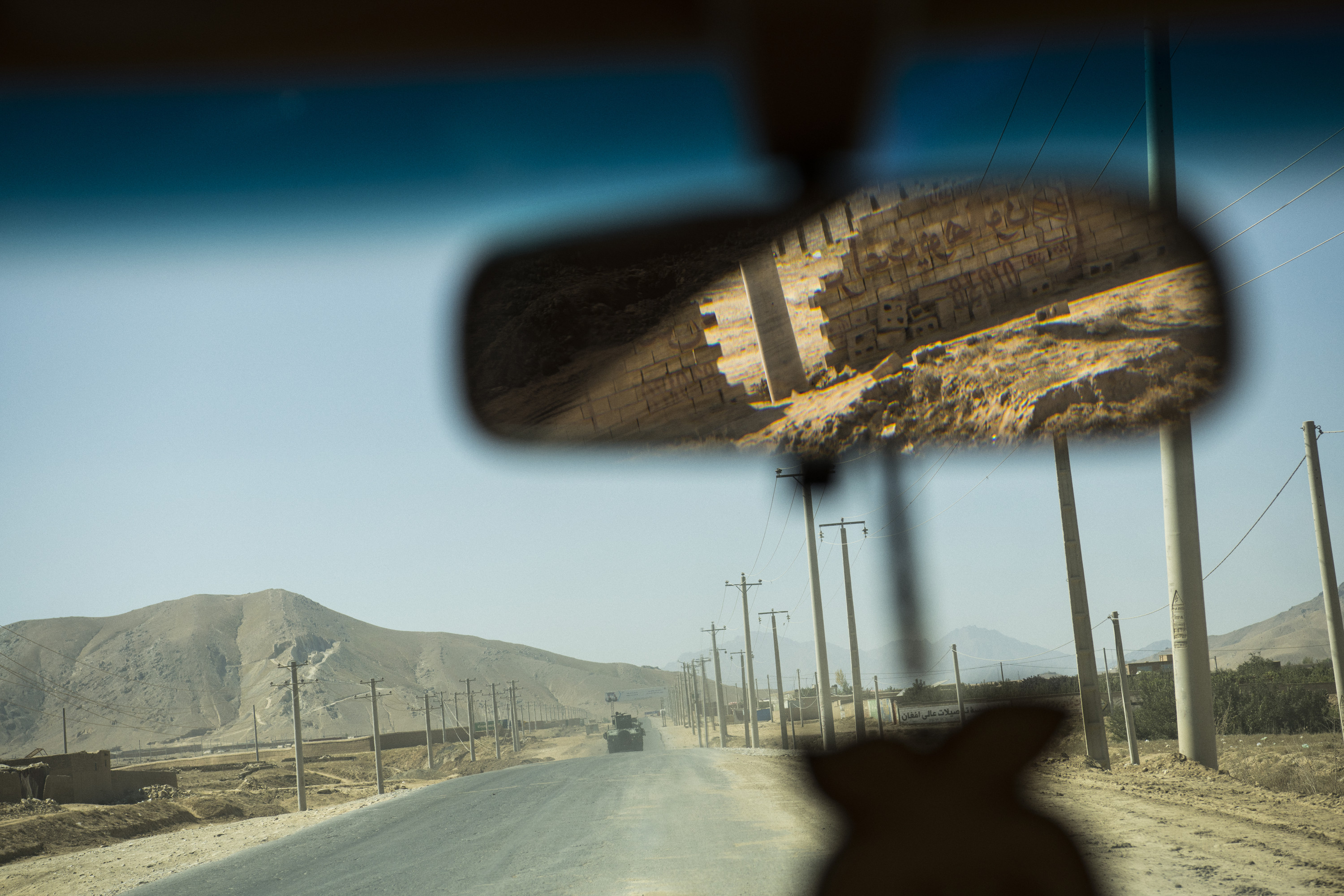
But it wasn’t just the Taliban who interfered in Afghanistan’s presidential election; the fraud that marred previous votes also dissuaded many from taking part this time around.
The historically low turnout has once again cast doubt over the future of the government, but few are surprised by the turmoil. Less than a month ago, the election wasn’t expected to happen at all. The vote had been on a collision course with the potential signing of a preliminary peace agreement between U.S. and Taliban representatives after months of negotiations in Doha, Qatar.
The Taliban, and many of incumbent President Ashraf Ghani’s political rivals, argued that a leader elected before a peace agreement was reached wouldn’t have a mandate to preside over the new political circumstances. But that calculus changed when Trump abruptly called off talks with the Taliban, prompting presidential candidates and diplomats to refocus on the election.
Skepticism was rife, not only among candidates but also voters. Not even the 72,000 security personnel the government deployed on Saturday was enough to gain voters’ confidence.
In Kabul, and in most provincial capitals, Afghan security forces were roundly applauded for securing voters and election workers. Reports of casualties varied from 20-30 security forces personnel killed across the country and around 40 injured, while approximately 10 civilians were killed and 70-150 injured; a day not dissimilar to any other in recent years.
But in Maidan Shahr, only an hour from Kabul, it was a different story.
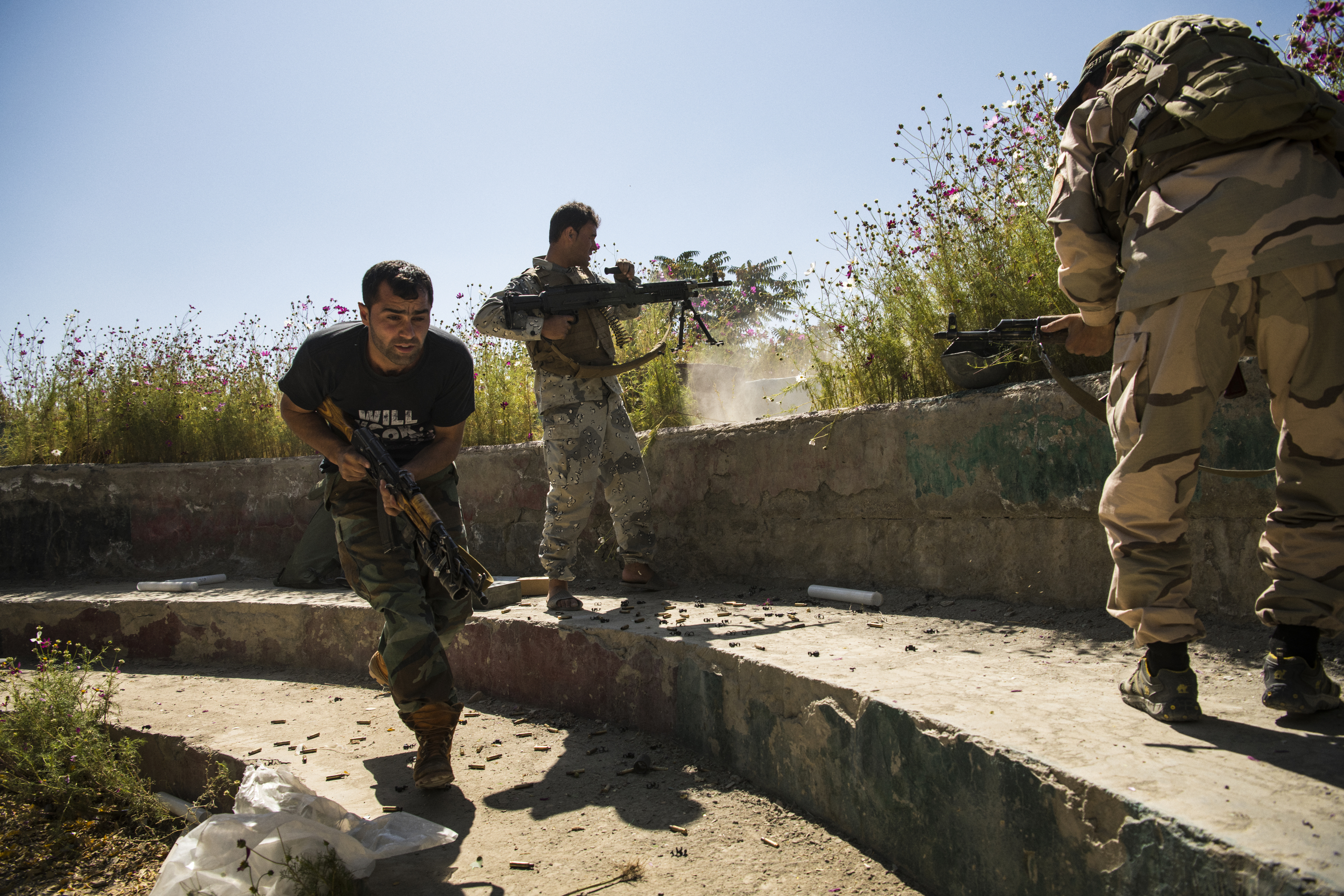
The city’s main polling center was located inside the provincial governor’s compound. During the late morning, more Taliban rockets could be heard than there were voters. By the time the 10th or 12th rocket struck during one barrage, workers for Afghanistan’s Independent Election Commission (IEC) had stopped flinching. Only when one fizzed through the air above the center did the workers duck for cover.
By late morning, less than half a mile from the city center, fewer than 20 people had voted in the two-story Awal Baba School. An unexploded IED had already been found in the yard and removed.
For Ehasanullah, the voting center’s manager, it was the second time he’d worked on a presidential election. The first time was in 2014. The difference this time, he said, was twofold: “The process is better, but people aren’t attending because of security.”
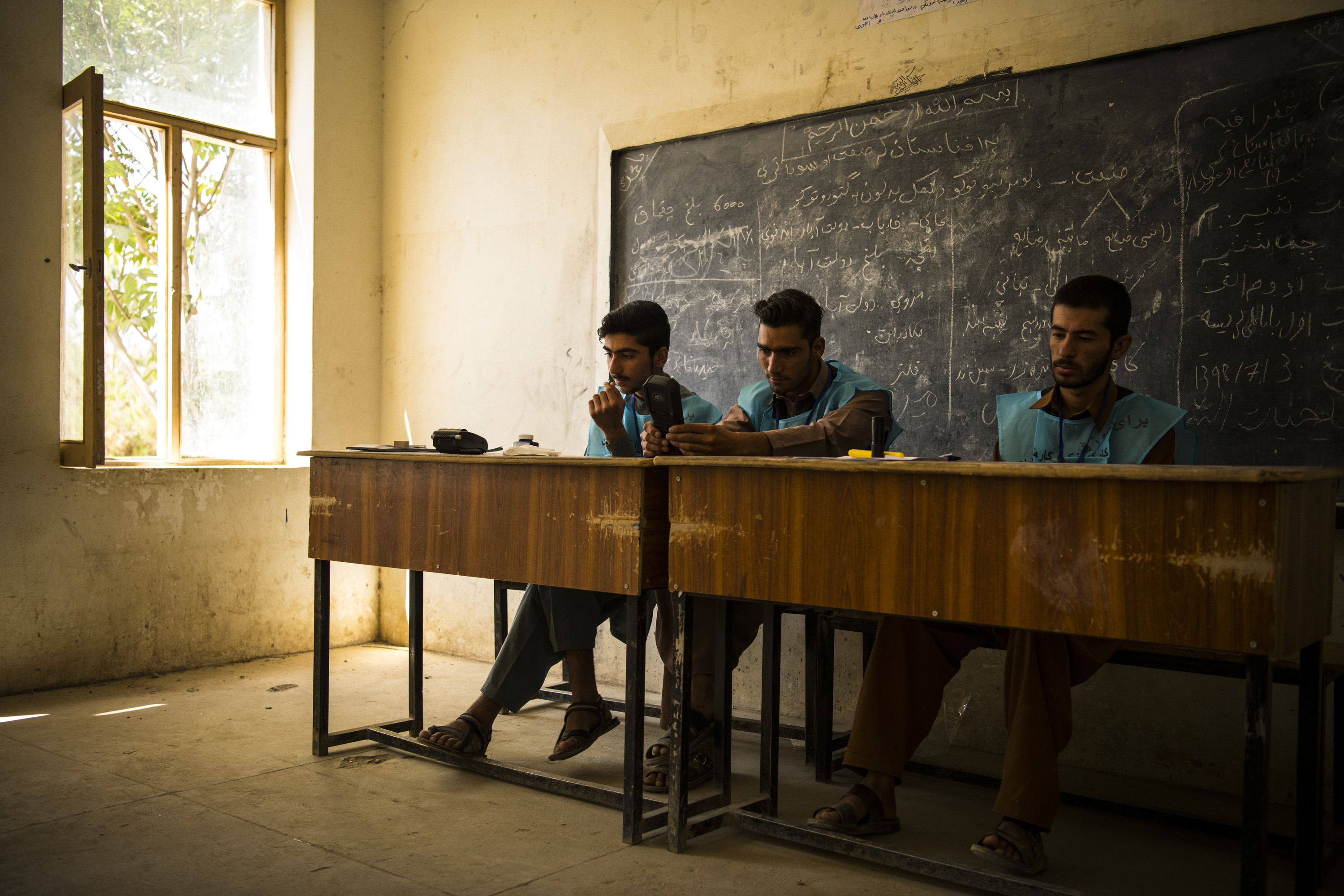
IEC workers sat idle behind school desks. One passed the time watching YouTube videos on one of the thousands of hand-held biometric devices distributed in an effort to crack down on voter fraud. Others sat and stared, seemingly oblivious to the cacophony of gunfire and explosions nearing the school. “Listen to the fighting,” said Ehasanullah. “People are staying in their homes.”
Read: Inside Afghanistan's Desperate Battle to Control a Dam in Taliban Country
Sayed Yakubshud was twice the age of most election observers. He was a supporter of Gulbuddin Hekmatyar, the leader of the notorious militia turned political party Hezb-i Islami. At a rally before the election, Hekmatyar threatened a return to violence if the vote was deemed fraudulent. Yakubshud was more sanguine. “There’s no voting — you can see the boxes,” he said. “But the transparency is good, at least in this part of the process.”
Preliminary tallies indicate voter turnout, nationwide, to be as low as 20 percent. In Wardak, the figures will be far lower. In one polling center, after five hours of voting, only 20 people out of 2,170 registered to vote at the center had cast ballots. Of those, 304 were women, two of whom had voted. (As of September 30, the IEC said 20,560 had so-far been tallied in Wardak).
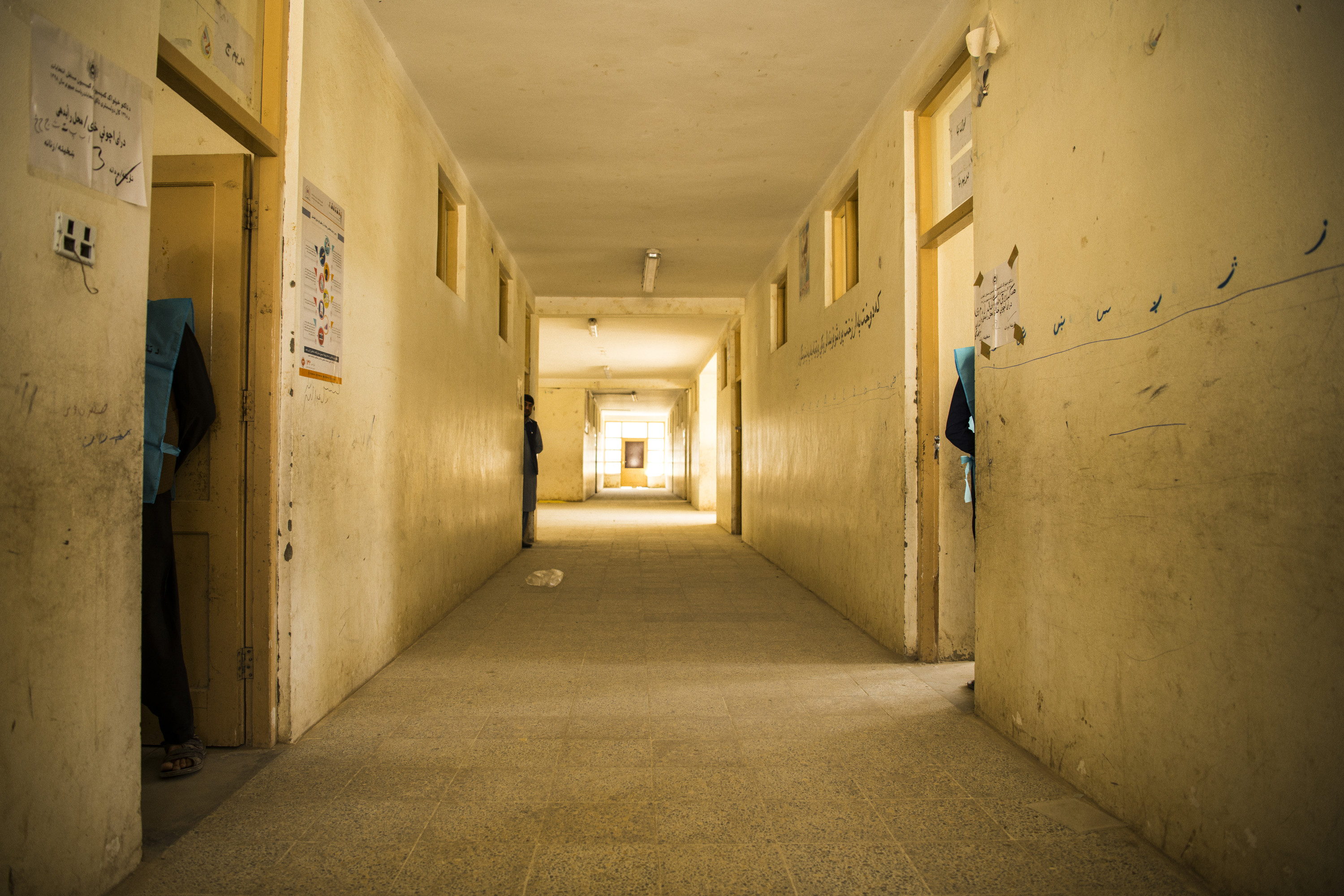
The gesture of voting on Saturday was both hopeful and defiant, and people were relieved that Taliban violence, countrywide, was blunted by the Afghan security forces. But the real damage may have been done before the polls even opened on Saturday. The mere threat of Taliban violence, it seemed, was enough to deal lasting damage on the democratic process.
As security personnel and election workers sat down to lunch in the classrooms they’d occupied for the day in Maidan Shahr, a rocket or mortar exploded 150 yards from the school, and election workers rushed from classrooms into the corridor where they’d be safe from shattering windows if another struck closer.
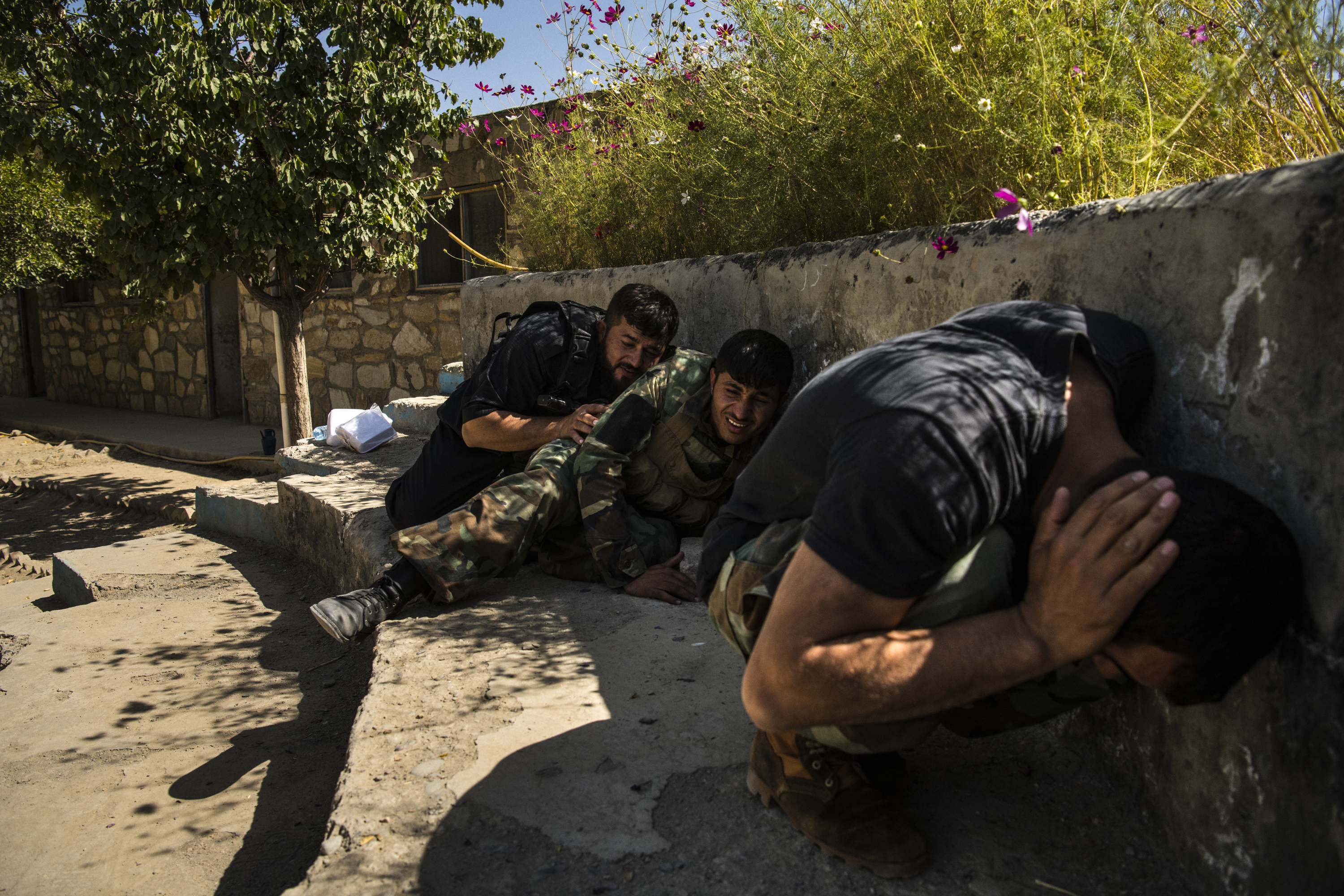
Soldiers fought from behind the wall of a small amphitheater topped with pink and white flowers in the school grounds. Taliban fighters, they said, were only 200 yards away. Sher Mohammad fired a belt-fed machine gun from the hip, parting the row of flowers with a torrent of bullets until smoke rose along the length of its barrel. Rocket-propelled grenade launchers sent dust into the air and tree leaves fluttering to the ground. The whistle of an incoming rocket sent the soldiers rushing for shelter in the curve of the amphitheater steps.
Back inside the school, Abdul Wahid dropped his vote in a clear plastic box alongside three other ballots at 1 p.m. He was the first voter to arrive in half an hour. “We’re voting for the future of Afghanistan,” he said. “Although we’re not sure the process will be transparent, we would like to try to select the person we want.”
With fighting still audible outside, Wahid said he'd been worried about the Taliban threats but unlike a majority of registered voters, it wasn’t enough to put him off casting his vote. “We’re used to these conditions,” he said. “It doesn’t scare me.”
Cover: Election workers and Afghan security forces inside the Awal Baba School voting center in Maidan Shahr, the capital of Wardak Province, an hour west of Kabul, as fighting rages outside. Andrew Quilty for VICE News.

